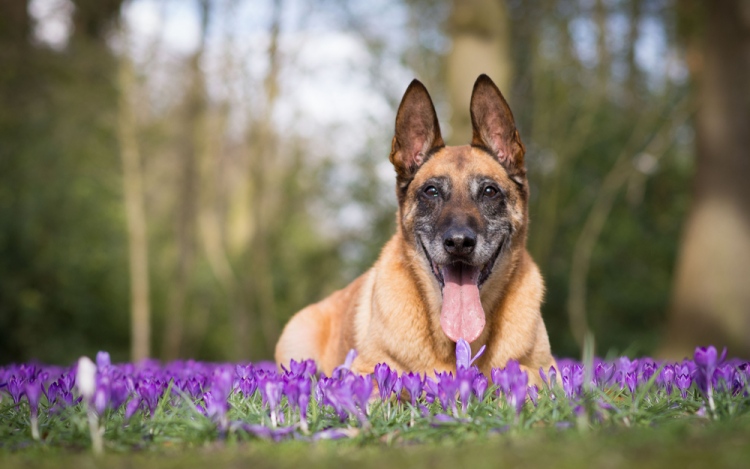There’s no worse time in a dog owner’s life than when their dog is sick. Your faithful companion can’t tell you directly what’s wrong – and you can’t directly tell them it’s going to be alright! You need to be alert for signs and symptoms that your dog is experiencing a problem, know how to act on the most common ones and when to get help for the others.
Digestion Trouble
One of the most common canine health complaints is an upset stomach, and if you want to be a dog owner, you need to know how to deal with dog diarrhea and vomiting, unfortunately.
After the initial clean up (using an enzyme cleaner can help to deal with stains and odour), you need to be able to support your dog. Most instances of gastric trouble will clear up within 48-72 hours if not sooner, caused by your dog eating something that disagrees with it, so you just need to know how to keep them comfortable until then. Hydration is the most important issue: even if there’s no deeper condition causing the vomiting, it can lead to dehydration which is a serious issue itself. Keep lots of clean, fresh water easily accessible so your dog can keep hydrated until the condition passes. It’s also important not to let your dog starve when it’s sick – offer easily digestible food, and try to tempt it’s appetite with small meals of boiled chicken or white fish with rice.
If the trouble doesn’t pass or you spot more worrying symptoms (blood in the stool, pain, fatigue, or aggression) then it’s time to make a visit to the vet, so don’t wait!
Age Concerns
Like us, dogs are prey to more health conditions as they age. It’s important to be aware of them so you can be ready for the treatment, dietary changes or other measures you can take to help improve your dogs’ old age.
Different breeds have different risks, so read up on the dog you have (or want) to be ready, but most breeds share an increased risk of arthritis, cataracts, and even conditions like dementia and heart trouble. Talk with your vet about what you need to prepare for as your dog ages and even when ‘old age’ is for your dog – different breeds enter the senior phase of their lives at different times, and you need to be ready!
Healthcare
The most important thing you can do is make sure your dog is registered at a vet right away. A vet can provide the initial vaccinations a puppy needs to stay healthy, regular health check ins, and advice when you’re worried. Online vet services are even more convenient, especially when you need advice and aren’t sure if you should subject your dog to a journey to the vet’s office. It might also be worth looking into pet insurance, so you have some options if you’re hit with an unexpected illness or injury and the attendant bill!




